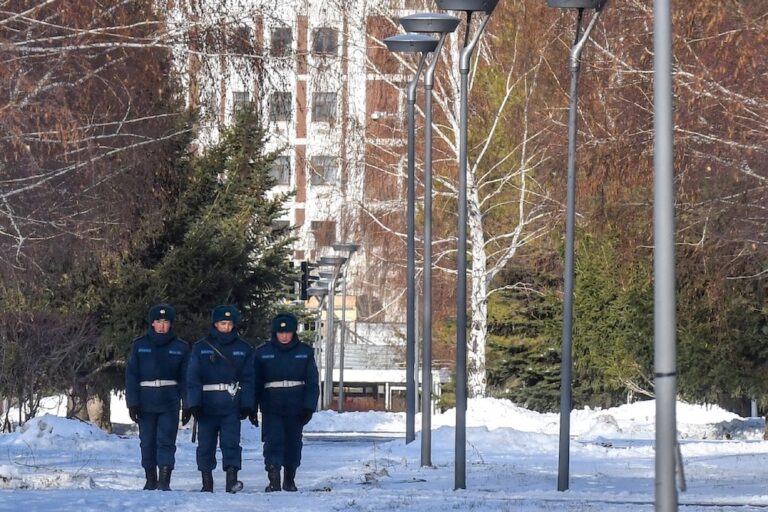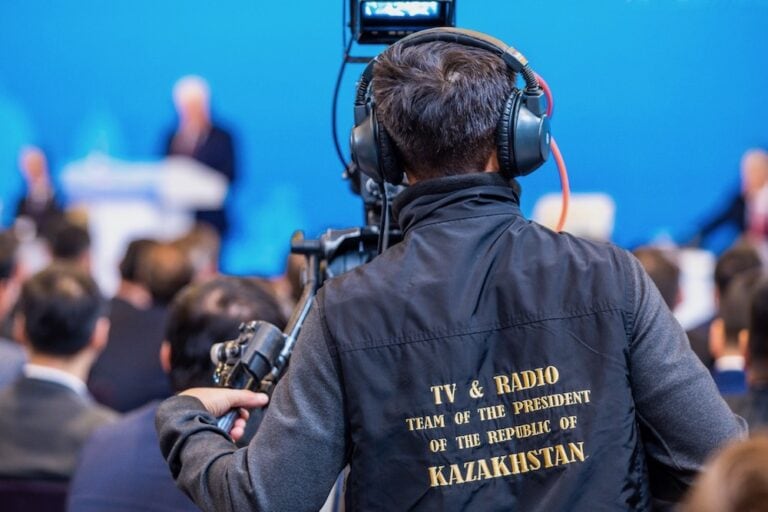(Adil Soz/IFEX) – The following is a 24 June 2006 statement by the president of Adil Soz: Laws that regulate the work of local journalists get worse every year. Media laws already grant the Kazakh authorities the right to conduct scheduled and unscheduled inspections, and offer them broad grounds to fine (even to the point […]
(Adil Soz/IFEX) – The following is a 24 June 2006 statement by the president of Adil Soz:
Laws that regulate the work of local journalists get worse every year.
Media laws already grant the Kazakh authorities the right to conduct scheduled and unscheduled inspections, and offer them broad grounds to fine (even to the point of bankruptcy), to suspend or to close media outlets in the event of any misprint.
With the latest amendments to media laws being proposed by the Information Ministry, we are facing a third wave of legal restrictions that would bring the status of press freedom in our country closer to that of Turkmenistan.
In 2005, members of Parliament prohibited foreigners from occupying the post of editor at local newspapers. It is now proposed to turn this practice into law. The proposed new amendments would also ban any editor whose media outlet had been closed in the past from opening a new one, and would prohibit the re-use of the name of any banned media outlet. Thus, we would never have a newspaper or radio station again with the same name as RIFMA, closed in 2002. Nor would we ever again read a newspaper with the title “Zhuma” (“Times”), the name of the newspaper closed by a court this year. Many Kazakh and Russian words would similarly be banned from use as the name of a media outlet.
The amendments would also institutionalize the Information Ministry’s attempts to control and regulate every step taken by editorial staff. Staff would require an official permit to replace their editor-in-chief, or to move into another office, or to increase their circulation.
Where are we going? Maybe back to 1937, where every grammatical mistake caused the person to be sent to Kalyma (a concentration camp)?
We at Adil Soz were involved in the work of the Majilis (lower house of Parliament) working group that was investigating the apparent intention of the Information Ministry to legalize censorship. In response to our concerns, we hear only the explanation that these restrictive measures are “for the sake of our national security”. “National security” is being used by our state officials to hide sins: corruption and illegality. Members of Parliament are trying to ban information and criticism. They are elected by us all, funded by us all, but work against us, against the public interest.
We requested a list of those Majilis deputies who voted in favor of these latest proposed amendments, to make their identities known to the public. The request was denied under the pretext of secrecy. This means that it is acceptable for them to vote against freedom of expression, but it is a shame to admit it. Perhaps we need to ask if we really want such a Parliament as we have now, or such an Information Ministry as we have now, or such a set of laws as we have now.


